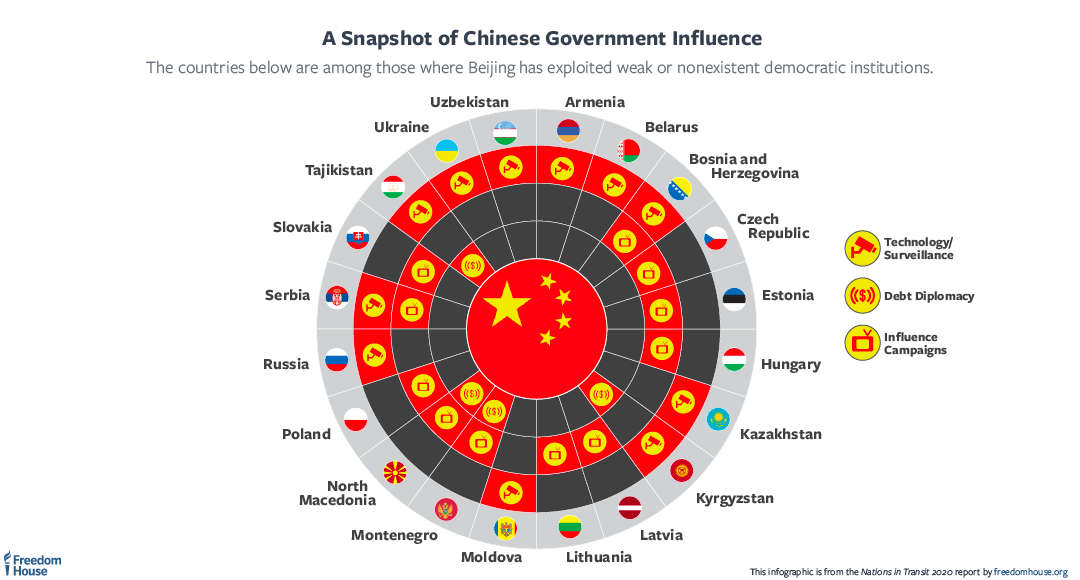Growing Chinese influence observed by Freedom House
The recent Freedom House Nations in Transit 2020 report pays particular attention to the growing Chinese influence in a number of countries in Central and Eastern Europe, and in Central Asia. The report notes: ‘While China’s international engagement is often less directly confrontational than Russia’s, it nevertheless has an insidious effect on the development and functioning of democratic institutions … influence campaign is focused around two major goals — expanding the country’s influence abroad, and promoting a positive image of China globally. … It tailors its approach to each individual country, taking advantage of institutional weaknesses, and surreptitiously embedding itself into corrupt political and economic structures. The aggregate impact of these measures is the further degradation of good governance, transparency, and the rule of law’.
The report notes three specific tools used by China for expanding antidemocratic influence in the region.
First and foremost, surveillance tools including ‘Safe City’ agreements, cameras for monitoring public spaces, facial and licence-plate recognition, are actively promoted. According to the report, some of those have been introduced in four EaP countries – Armenia, Belarus, Moldova and Ukraine, as well as in Russia,1 Central Asian states, Serbia and Bosnia and Herzegovina.
Second, influence campaigns in the media have been going on, including promotion of the Chinese Communist Party’s preferred narratives, suppression of critical viewpoints, as well as management of content delivery systems. The report particularly mentions misleading op-eds published in several Central and Eastern European countries, pushing a pro-China narrative. A number of EU members are among the countries exposed to this method if influence. Third, China has been increasing influence in the region by ‘debt diplomacy’, providing infrastructurally weak countries in need of cash with funds in a way resulting in political dependency. This is the case of Montenegro, North Macedonia, Kyrgyzstan and Tajikistan.
1 It may be argued that in Russia’s case political preferences and goals of Putin’s regime would have resulted in an expansion of electronic surveillance methods even irrespective of China’s interests.
The full article can be accessed at: centreforpolicystudies.org
It was originally published by the Yerevan-based Centre for Policy Studies.

